What We Treat Blood Disorders
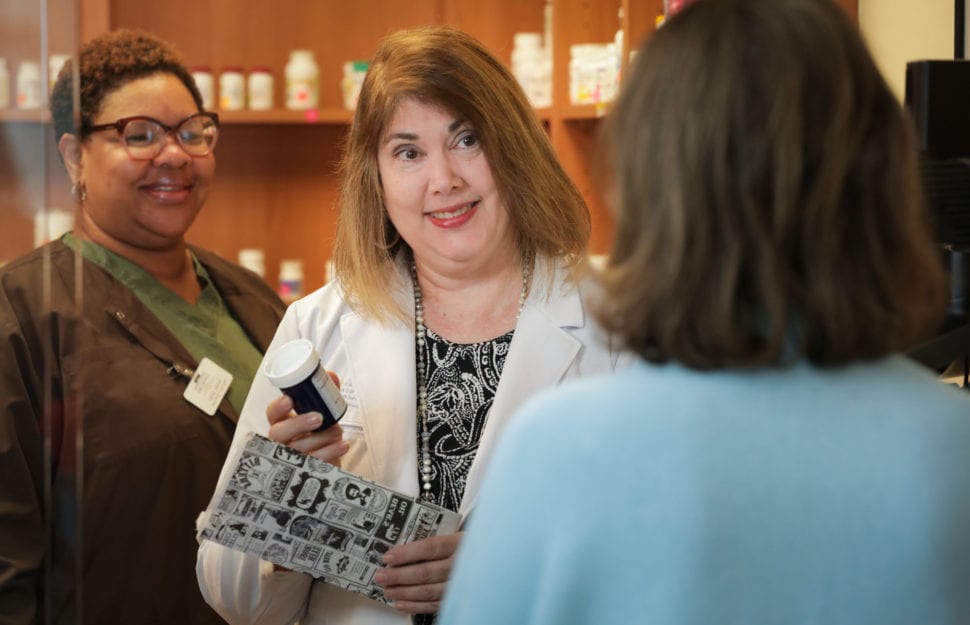
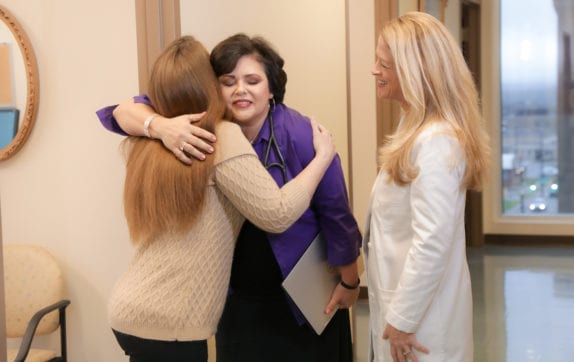
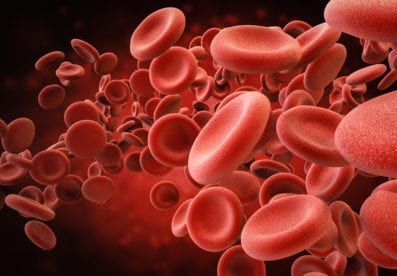
In addition to treating cancer, Central Georgia Cancer Care physicians also specialize in researching, diagnosing, treating, and preventing blood disorders and disorders of the lymphatic system. We treat many patients who suffer from blood disorders, which are conditions that impact the blood’s ability to function properly.
Blood disorders can affect different components of the blood including the red blood cells, white blood cells, and platelets. Symptoms vary according to the type of blood disorder a person has, but most include general feelings of being unwell with no apparent cause, unexplained exhaustion, and unexplained weight loss.
Red Blood Cell Disorders
Some blood disorders affect the red blood cells. These cells carry hemoglobin, an iron-rich molecule that attaches to oxygen and carries it into the body tissues. The most common is anemia, which affects more than three million Americans. Anemia occurs when you do not have enough red blood cells or when your red blood cells do not function properly.
Symptoms of Red Blood Disorders
Symptoms of red blood disorders indicate your body lacks oxygen, and these symptoms include:
- Unexplained exhaustion
- Shortness of breath
- Craving ice (pica)
- Dizziness or light-headedness
- Fast or irregular heartbeat
- Pounding or “whooshing” in your ears
- Muscle weakness
- Headache
- Cold hands or feet
- Paleness
- Difficulty concentrating and remembering
- Chest pain
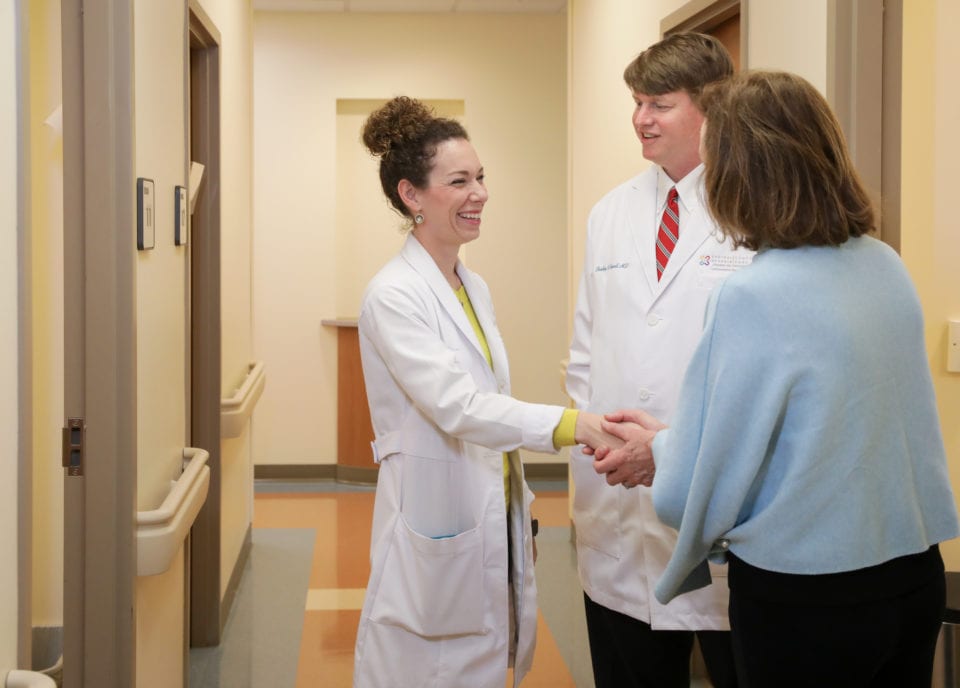
““Central Georgia Cancer Care has great doctors, like Dr. Linda Hendricks, and a super staff. They treat you like family and they check up on you to see how you are doing.” – Warner Robins patient
Types of Anemias The Most Common Types of Anemias
Anemia of chronic illness or renal failure
Iron-deficiency anemias
When the body does not have enough iron or cannot properly absorb it
Pregnancy anemia
When there is more of a demand for red blood cells than normal
Non-inherited hemolytic anemias
Where red blood cells are broken and destroyed in the bloodstream abnormally, either by injury, illness, or medications
Inherited hemolytic anemias (like Sickle-Cell Anemia)
Where red blood cells are broken down or destroyed more quickly than the body can replace them
Aplastic anemias
When the bone marrow stops producing enough blood cells.
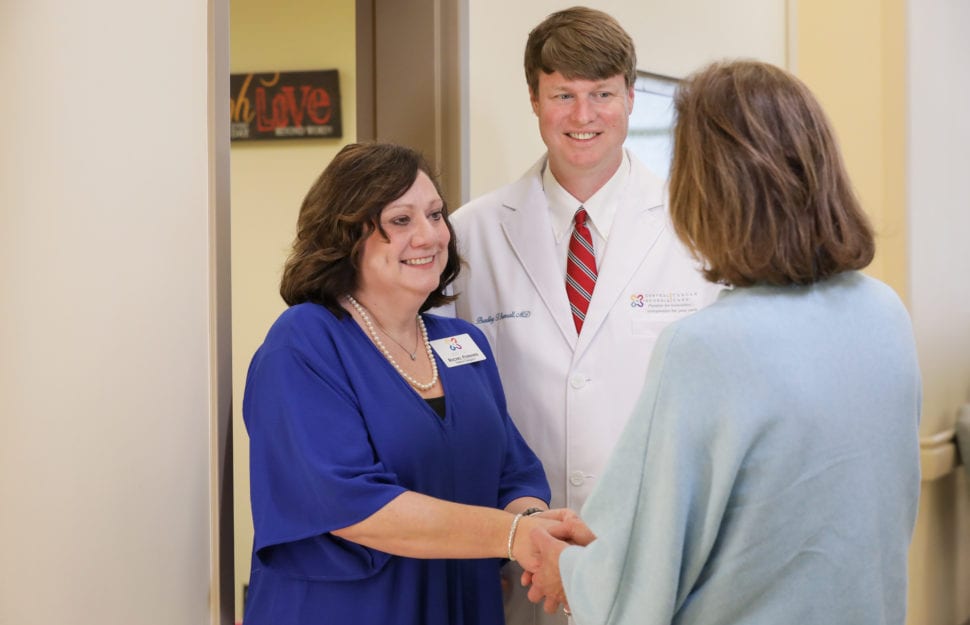
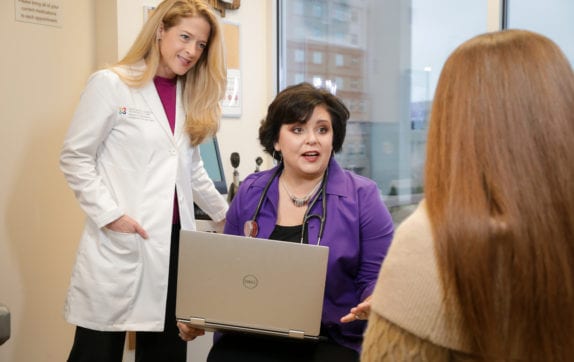

White Blood Cell Disorders
White blood cells (called Leukocytes) are produced primarily in the bone marrow and help the body fight off infection.
Normally, people produce about 100 billion white blood cells a day. Too few or too many white blood cells in a given volume of blood indicate a disorder like leukopenia, leukocytosis, neutropenia, and others. Common symptoms include:
- Chronic infections
- Fatigue
- Unexplained weight loss
- Malaise, or a general feeling of being unwell.
Platelets
Platelets (sometimes called thrombocytes) are cell fragments that circulate in the bloodstream and help blood to clot. Signs of platelet and clotting disorders include:
- Difficulty forming blood clots at wounds or controlling bleeding
- Injuries that are slow to heal or keep re-opening
- Unexplainable bruising or skin that easily bruises
- Unexplainable bleeding from the nose, gums, gastrointestinal system, or urogenital system.
Blood clots that do not dissolve naturally inside of blood vessels (veins or arteries) are bleeding disorders which may restrict the return of blood to the heart.
A Deep Vein Thrombosis (DVT) is a type of clot that forms in a major vein of the leg (or arms, pelvis or other large veins). DVT’s are considered extremely dangerous. In some cases, a clot may detach from its origin and travel through the heart to the lungs where it becomes wedged and prevents blood flow (a pulmonary embolism).
Hemophilia and Von Willebrand disease are both inherited disorders caused by lack of or abnormal clotting proteins.
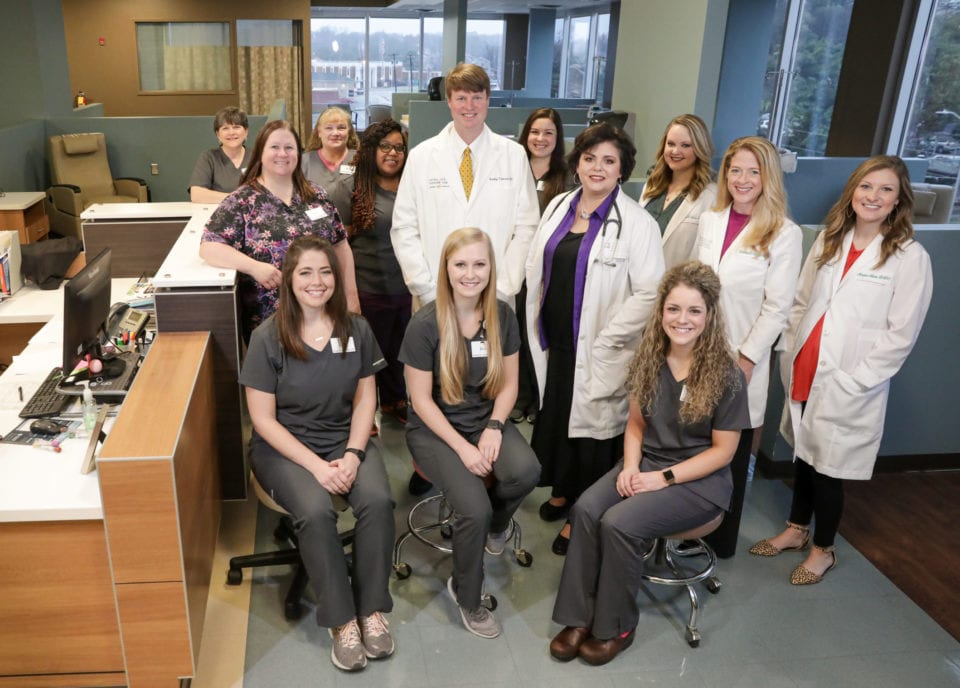
““Super smart and compassionate. Dr. Hendricks is awesome and super sweet!” – Corey
Questions Questions to Ask Your Doctor
As Partners in Care, Central Georgia Cancer Care wants you to be empowered to make informed decisions about your health care. Please feel free to ask any questions you may have, even those beyond the list that follows. It may also be helpful to bring someone along to your appointments to take notes.
- What is my diagnosis? What does this mean?
- What causes my condition or disorder?
- How common is my diagnosis?
- What test do I need to confirm the diagnosis?
- Will any of these tests need to be repeated after I undergo treatment? How often?
- What should I expect with this diagnosis?
- Have you worked with other patients that have this diagnosis?
- Is my blood condition curable?
- What is my best course of treatment?
- What side effects does the treatment have?
- What is the treatment’s success rate?
- What will the treatment cost? Will my insurance cover it?
- Are there clinical trials for new drugs to treat this disorder? Where are they? Do you recommend them?
- Should I make any lifestyle or diet changes to improve my quality of life?
- Will I still be able to work or travel?
- Are there any activities I should avoid?
- Should my family members get tested for possible hereditary issues?
- What resources do you recommend so that I can read more about my condition?
- What type of follow-up appointments should I expect?

“Dr. Sumrall is very informative and does a great job of explaining my situation and treatment plan in way I can understand. I know he truly cares about me.”
Wilton
For More Information on
Blood Disorders
For more information on treating leukemia, please see our leukemia page. For multiple myeloma, please see our multiple myeloma page.
American Society of Hematology
